![]()
![]()
![]()
Invited Short Talks
(Speakers listed below in name alphabet order)
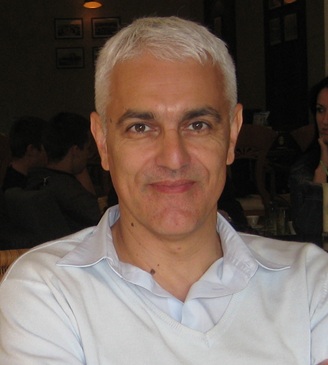
Bane Vasic (IEEE Fellow)
Professor,
University of Arizona, USA
Talk
Title: Detection for Two Dimensional Magnetic Recording Systems
Bio:
Dr. Vasic is an inventor of the soft error-event decoding algorithm, and the key architect of a detector/decoder for Bell Labs magnetic recording read channel chips which were regarded as the best in industry. Different variants of this algorithm were implemented in virtually all magnetic hard drives. His pioneering work on structured low-density parity check (LDPC) error correcting codes and invention of codes has enabled low-complexity iterative decoder implementations. Structured LDPC codes are today adopted in a number of communications standards and in extremely high-density magnetic storage systems. He was also involved in a DVD Copy Protection Standardization Group sponsored by the DVD Industry Consortium and Hollywood Movie Studios.
Dr. Vasic is known for his theoretical work in error correction coding theory and codes on graphs which has led to analytical characterization of the hard decision iterative decoders of LDPC codes, and design of codes with best error-floor performance known today. He is a founder and CEO of Codelucida, a startup company developing advanced error correction solutions for communications and data storage. He is an IEEE Fellow and da Vinci Fellow.
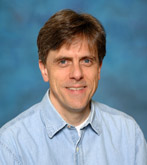
David Tipper
Director, Graduate Telecommunications and Networking Program,
University of Pittsburgh, USA
Talk
Title:
Wireless Network Virtualization: Trends and Issues
Bio:
David Tipper is the Director of the Graduate Telecommunications and Networking Program at the University of Pittsburgh. Professor Tipper's research has been supported by grants from various government and corporate sources such as NSF, ARO, DARPA, NIST, AT&T, and IBM. He is the co-author of the textbook The Physical Layer of Communication Systems, published by Artech House in 2006 and co-editor of the contributed research book Information Assurance: Dependability and Security in Networked Systems published by Morgan Kaufmann in 2008. His current research focuses on resilient network design, techno-economic models of dynamic spectrum assignment, information security metrics/models and time varying network performance analysis.

Erik Blasch (SPIE Fellow)
Bio:
Erik Blasch received his B.S. in mechanical engineering from the Massachusetts Institute of Technology in 1992 and Master’s degrees in mechanical engineering (’94), health science (’95), and industrial engineering (human factors) (’95) from Georgia Tech and attended the University of Wisconsin for a M.D./Ph.D. in mechanical engineering/neurosciences until being called to active duty in 1996 to the United States Air Force. He completed an M.B.A. (’98), M.S.E.E. (’98), M.S. economics (’99), M.S./Ph.D. psychology (ABD), and a Ph.D. in electrical engineering from Wright State University and is a graduate of Air War College. Currently he is a principal scientist at the Air Force Research Laboratory (AFRL) Information Directorate leading programs in Enhanced Exploitation and Analysis Tools. From 2010-2012, Dr. Blasch was an exchange scientist to Defence R&D Canada (DRDC) at Valcartier, Quebec in the Future Command and Control (C2) Concepts and Structures Group of the C2 Decision Support Systems Section. From 2000-2010, Dr. Blasch was the information fusion evaluation tech lead for the AFRL Sensors Directorate—COMprehensive Performance Assessment of Sensor Exploitation (COMPASE) Center. He was also an adjunct electrical engineering and biomedical engineering professor at Wright State University (WSU) teaching classes in communications, signal processing, and microprocessors while graduating PhD and MS students and received adjunct teaching awards. Other appointments include teaching and mentoring students at the Air Force Institute of Technology (AFIT) and the University of Dayton in Dayton, OH. For almost 20 years, he is been assigned as a reserve officer with the Air Force Office of Scientific Research (AFRL/AFOSR) in Arlington, VA supporting physics, electronics, and nanotechnology developments.
Dr. Blasch was a founding member of the International Society of Information Fusion (ISIF) in 1998, a Member of the ISIF BoG from 2003 to 2010, and the 2007 ISIF president. He is currently a Member of the IEEE Aerospace and Electronics Systems Society (AESS) BoG, IEEE AESS Chapters Chair, and Member of the IEEE AESS Track Standards Committee. He received the 2009 IEEE Russ Bioengineering Award, was a Dayton, OH and Montreal, QC AESS president, and supported the IEEE 2005, 2008, and 2011 Sections Congress meetings. In addition, he won IEEE challenge contests in signal processing in 2008, 2011, and 2012 in addition to supporting over 20 engineering challenge problems in the last decade as well as IEEE student and regular best paper awards. He currently is an associate editor for IEEE SMC-A, IEEE AES Magazine, and the Journal of Advances in Information Fusion, in addition to supporting numerous journals through professional reviews. He began his career in robotics compiling over 30 top ten finishes as part of robotic teams in international competitions including winning the ’91 American Tour del Sol solar car competition, ’94 AAAI mobile robotics contest, and the ’93 Aerial Unmanned Vehicle competition where they were first in the world to automatically control a helicopter. He has focused on robotics, pattern recognition, targeting tracking, communications, and information fusion research for biomedical, surveillance, space, and cyber applications compiling 400+ scientific papers and book chapters. He has given numerous invited, keynote, and plenary talks as well as tutorials such as Information Fusion Evaluation: from Methods to Metrics. His recent book is High-Level Information Fusion Management and Systems Design. He is a Senior Member of IEEE, associate fellow of AIAA, and Fellow of SPIE.
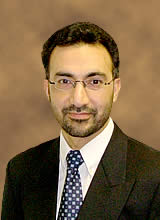
Irfan Awan (HEA Fellow)
Professor,
University of Bradford, UK
Talk
Title:
Bio:
Irfan Awan is a Professor of Computer Science in the Department of Computing, University of Bradford UK. He received his PhD from University of Bradford, UK in 1997 and joined the Department of Computing in the same university in 1999 as a Lecturer. He has published over 200 papers in prestigious international journals and refereed conference. He has edited several special issues of international journals and organised various international conferences and workshops. His research interests include performance modelling and evaluations of networks and communication systems. He is a member of IEEE, BCS, EPSRC College and fellow of HEA.

Jerry D. Gibson (IEEE Fellow)
Professor and Chair of ECE,
University of California, Santa Barbara, USA
Talk
Title:
Dealing with Exponential Growth in Wireless Video
Abstract:
As has been well-publicized, exponential growth in mobile video traffic is expected in the next few years. This growth will be fueled by a heterogeneous mix of video applications and must be accommodated using a heterogeneous set of wireless networks. We argue that (1) Average performance should not be the measure used for the design or evaluation of wireless video network performance, (2) solutions must acquire and use all information in the network, and (3) all wireless video problems are joint source/channel coding problems. We present technical results from video over WLANs, video over ad hoc networks, and lossy source coding over wireless MIMO channels, respectively, to illustrate these points.
Bio:
Jerry D. Gibson is Professor and Department
Chair of Electrical and Computer Engineering at the University of California,
Santa Barbara. He is co-author of the books Digital Compression for Multimedia
(Morgan-Kaufmann, 1998) and Introduction to Nonparametric Detection with
Applications (Academic Press, 1975 and IEEE Press, 1995) and author of the
textbook, Principles of Digital and Analog Communications (Prentice-Hall, second
ed., 1993). He is Editor-in-Chief of The Mobile Communications Handbook (CRC
Press, 2nd ed., 1999), Editor-in-Chief of The Communications Handbook (CRC
Press, 2nd ed., 2002), and Editor of the book, Multimedia Communications:
Directions and Innovations (Academic Press, 2000).
Dr. Gibson was Associate Editor for
Speech Processing for the IEEE Transactions on Communications from 1981 to 1985
and Associate Editor for Communications for the IEEE Transactions on Information
Theory from 1988-1991. He was President of the IEEE Information Theory Society
in 1996, and served on the Board of Governors of the IT Society for 10 years. He
was a member of the Speech Technical Committee of the IEEE Signal Processing
Society from 1992-1994. Dr. Gibson served as Technical Program Chair and Founder
of the 1999 IEEE Wireless Communications and Networking Conference, Technical
Program Chair of the 1997 Asilomar Conference on Signals, Systems, and
Computers, and General Co-Chair of the 1993 IEEE International Symposium on
Information Theory. He was an elected Member-atLarge on the Communications
Society Board of Governors for 2005-2007. Currently, he serves on the Steering
Committee for the Wireless Communications and Networking Conference and on the
Editorial Board of the Hindawi Open Access journal Advances in Multimedia. He
was an IEEE Communications Society Distinguished Lecturer for 2007-2008, and he
is a member of the IEEE Awards Committee and the IEEE Medal of Honor Committee.
In 1990, Dr. Gibson received The Fredrick Emmons Terman Award from the American
Society for Engineering Education, and in 1992, was elected Fellow of the IEEE
“for contributions to the theory and practice of adaptive prediction and speech
waveform coding.” He was co-recipient of the 1993 IEEE Signal Processing Society
Senior Paper Award for the Speech Processing area. Dr. Gibson received the IEEE
Technical Committee on Wireless Communications Recognition Award in 2009 for
contributions in the area of "Wireless Communications Systems and Networks", and
he and his students received the IEEE Transactions on Multimedia Best Paper
Award in 2010. His research interests include data, speech, image, and video
compression, multimedia over networks, wireless communications, information
theory, and digital signal processing.
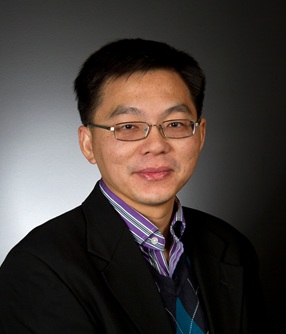
Junshan Zhang (IEEE Fellow)
Professor,
Arizona State University, USA
Talk
Title:
Stochastic modeling for Wind generation Forecast: A Spatio-temporal Analysis
Approach
Bio:
Junshan Zhang received his Ph.D. degree from the School of ECE at Purdue
University in 2000. He joined the EE Department at Arizona State University in
August 2000, where he has been Professor since 2010. His research interests
include communications networks, cyber-physical systems with applications to
smart grid, stochastic modeling and analysis, and wireless communications. His
current research focuses on fundamental problems in information networks and
network science, including network optimization/control, smart grid, cognitive
radio, and network information theory.
Prof. Zhang is a fellow of the IEEE, and a recipient of the ONR Young
Investigator Award in 2005 and the NSF CAREER award in 2003. He received the
Outstanding Research Award from the IEEE Phoenix Section in 2003. He served as
TPC co-chair for WICON 2008 and IPCCC'06, TPC vice chair for ICCCN'06, and a
member of the technical program committees of INFOCOM, SECON, GLOBECOM, ICC,
MOBIHOC, BROADNETS, and SPIE ITCOM. He was the general chair for IEEE
Communication Theory Workshop 2007. He was an Associate Editor for IEEE
Transactions on Wireless Communications. He is currently an editor for the
Computer Network journal and IEEE Wireless Communication Magazine. He
co-authored a paper that won IEEE ICC 2008 best paper award, and one of his
papers was selected as the INFOCOM 2009 Best Paper Award Runner-up. He is TPC
co-chair for INFOCOM 2012.
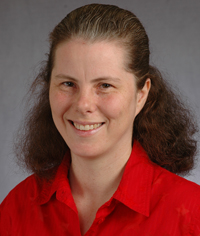
Pamela Cosman (IEEE Fellow)
Professor and Vice Chair of ECE,
University of California, San Diego, USA
Talk
Title:
PHY-APP Cross-Layer Wireless Video Transmission
Bio:
Pamela Cosman obtained her B.S. in EE from Caltech in 1987, and her Ph.D. in EE from Stanford University in 1993. After a postdoc at the University of Minnesota, she joined in 1995 the faculty of Electrical and Computer Engineering at the University of California, San Diego, where she is currently a Professor and Vice-Chair. She was the Director of the Center for Wireless Communications from 2006 to 2008. Her research interests are in the areas of image and video compression and processing, and wireless communications. She was an associate editor of the IEEE Communications Letters and the IEEE Signal Processing Letters, and was the Editor-in-Chief (2006-2009) as well as a Senior Editor of the IEEE Journal on Selected Areas in Communications. She is a member of Tau Beta Pi and Sigma Xi, and a Fellow of the IEEE.
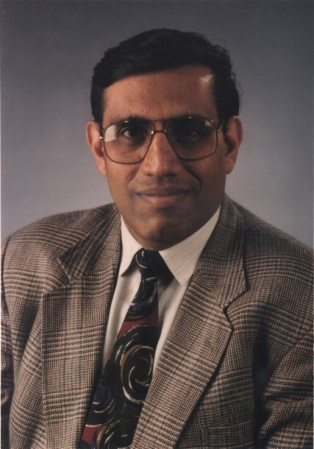
Pramod K. Varshney (IEEE Fellow)
Distinguished
Professor,
Syracuse University, USA
Talk
Title:
On
the Design and Performance of Multiband Cognitive Radio Networks
Bio:
Pramod K. Varshney received the B.S. degree in electrical engineering and computer science and the M.S. and Ph.D. degrees in electrical engineering from the University of Illinois at Urbana-Champaign in 1972, 1974, and 1976, respectively. Since 1976 he has been with Syracuse University, where he is currently a Distinguished Professor of Electrical Engineering and Computer Science and the Director of CASE: Center for Advanced Systems and Engineering. His current research interests are in distributed sensor networks and data fusion, detection and estimation theory, wireless communications, image processing, radar signal processing and remote sensing. He is a Fellow of the IEEE and has received numerous awards. He serves as a distinguished lecturer for the IEEE Aerospace and Electronic Systems Society. He was the 2001 president of International Society of Information Fusion.

Rene L. Cruz (IEEE Fellow)
Professor,
University of California, San Diego, USA
Talk
Title:
Wireless Ad-Hoc Networks at Global Scale: Is it Possible?
Bio:
Rene L. Cruz received the BS and Ph.D. degrees in electrical engineering
from the University of Illinois in 1980 and 1987, respectively. He received the
SM degree in electrical engineering from the Massachusetts Institute of
Technology in 1982. Since 1987, he has been with the Department of Electrical
and Computer Engineering at the University of California, San Diego, where he is
presently a Professor. He is a Fellow of the IEEE, and was co-recipient of the
2008 Stephen O. Rice Prize Paper award for the paper entitled "Network Duality
for Multiuser MIMO Beamforming Networks and Applications." He received the 2009
INFOCOM Achievement Award from the IEEE "for fundamental and pioneering
contributions to network calculus." In 2004, he co-founded Mushroom Networks,
Inc., which produces network aggregation technology, and currently serves as
Chief Science Officer of the company.
Shrikanth Narayanan (IEEE/AAAS/ASA Fellow)
Andrew J. Viterbi
Professor of Engineering,
University of Southern California, USA
Talk
Title:
Human-centered Wireless Body Computing: The Multifold Opportunities
and Challenges
Bio:
Shrikanth Narayanan received his M.S., Engineer, and Ph.D., all in electrical engineering, from UCLA in 1990, 1992, and 1995, respectively. From 1995-2000 he was with AT&T Labs-Research, Florham Park and AT&T Bell Labs, Murray Hill--first as a Senior Member and later as a Principal member of its Technical Staff. Currently, he is a Professor at the Signal and Image Processing Institute of USC's Electrical Engineering department and holds joint appointments as Professor in Computer Science, Linguistics and Psychology. He is also the inaugural director of the Ming Hsieh Institute at USC. He was a Research Area Director of the Integrated Media Systems Center, an NSF Engineering Research Center at USC, and was the Research Principal for the USC Pratt and Whitney Institute for Collaborative Engineering, a unique partnership between academia and industry (2003-2007).
Shri Narayanan is currently an Editor for the Computer, Speech and Language Journal and an Associate Editor for the IEEE Transactions on Multimedia, the IEEE Transactions on Affective Computing and the Journal of Acoustical Society of America having previously served an Associate Editor for the IEEE Transactions of Speech and Audio Processing (2000-2004) and the IEEE Signal Processing Magazine (2005-2008). He holds positions on the Speech Communication and Acoustic Standards committees of the Acoustical Society of America and the Advisory Council of the International Speech Communication Association, having previously served on the Speech Processing Technical Committee (2003-2007) and on the Multimedia Signal Processing technical committee (2005-2008) of the IEEE Signal Processing Society. At USC, he was Chair of the Joint Provost-Senate University Research Committee (2006-09) and, a Past President of the Phi Kappa Phi Academic Honor Society (2007-08).
Shri Narayanan is a Fellow of the Acoustical Society of America (ASA), the Institute of Electrical and Electronics Engineers (IEEE) and the American Association for the Advancement of Science (AAAS). He is a member of Tau Beta Pi, Phi Kappa Phi and Eta Kappa Nu. He holds the first Viterbi Professorship in Engineering at USC. He is a recipient of an NSF CAREER award, USC Engineering Junior Research Award, USC Electrical Engineering Northrop-Grumman Research award, a Mellon award for mentoring excellence, a USC Distinguished Faculty Service Award, an Okawa Research Award, IBM Faculty Awards (2008, 2010), the 2011 UCLA Engineering Alumni Professional Achievement Award, and a faculty fellowship from the USC Center for Interdisciplinary research. He is a recipient of a 2005 Best Paper award (with Alex Potamianos) and a 2009 Best Paper Award (with Chul Min Lee) from the IEEE Signal Processing society and was selected as Signal Processing Society Distinguished Lecturer for 2010-2011. Papers co-authored with his students have won awards at Interspeech2011-Speaker State Challenge, InterSpeech 2010, InterSpeech 2009-Emotion Challenge, IEEE DCOSS 2009, IEEE MMSP 2007, IEEE MMSP 2006, ICASSP 2005 and ICSLP 2002. His research interests are in signals and systems modeling with an interdisciplinary emphasis on speech, audio, language, multimodal and biomedical problems and applications with direct societal relevance. His laboratory is supported by federal (NSF, NIH, DARPA, ONR, Army and DHS) and industry grants. He has published over 500 papers and has 13 granted U.S. patents.
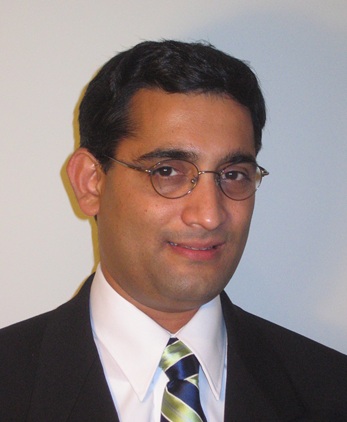
Suresh Subramaniam
Professor,
George Washington
University, USA
Talk
Title:
Inter-domain QoT-aware RWA for Translucent Optical Networks
Bio:
Suresh Subramaniam received the
Ph.D. degree in electrical engineering from the University of Washington,
Seattle, in 1997. He is a Professor in the Department of Electrical and Computer
Engineering at the George Washington University, Washington, DC. His research
interests are in the architectural, algorithmic, and performance aspects of
communication networks, with particular emphasis on optical networks.
Dr. Subramaniam is a co-editor of the books "Optical WDM Networks - Principles
and Practice'' and "Emerging Optical Network Technologies: Architectures,
Protocols, and Performance''. He has served on the program committees of several
conferences including Infocom, ICC, Globecom, OFC, and Broadnets. He is a TPC
Co-Chair for INFOCOM 2013, and served as TPC Co-Chair for the optical networks
symposia at Globecom 2006 and ICC 2007. He currently serves on the editorial
boards of the IEEE/ACM Transactions on Networking, Optical Switching and
Networking, and KICS Journal of Communications and Networks. He is a
co-recipient of Best Paper Awards at the ICC 2006 Symposium on Optical Systems
and Networks, and at the 1997 SPIE Conference on All-Optical Communication
Systems.
S. J. Ben Yoo (IEEE/OSA Fellow)
Professor,
University of California,
Davis, USA
Talk
Title:
TBA
Bio:
TBA
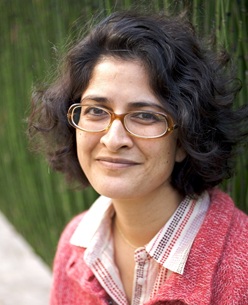
Urbashi Mitra (IEEE Fellow)
Professor,
University of Southern California, USA
Talk
Title:
Human-centered Wireless Body Computing: The Multifold Opportunities
and Challenges
Bio:
Urbashi Mitra received the B.S. and the M.S. degrees from the University of California at Berkeley in 1987 and 1989 respectively, both in Electrical Engineering and Computer Science. Prior to commencing the Masters degree, she was a visiting research assistant at the Signal Processing Laboratory of theTampere University of Technology, Finland. From 1989 until 1990 she worked as a Member of Technical Staff at Bellcore in Red Bank, NJ. In 1994, she received her Ph.D. from Princeton University in Electrical Engineering. From 1994 to 2000, Dr. Mitra was a member of the faculty of the Department of Electrical Engineering at The Ohio State University, Columbus, Ohio. In 2001, she joined the Department of Electrical Engineering at the University of Southern California,Los Angeles, where she is currently a Professor.
Dr. Mitra is currently an Associate Editor for the IEEE Transactions on Information Theory and the IEEE Journal of Oceanic Engineering. She was an Associate Editor for the IEEE Transactions on Communications from1996 to 2001. Dr. Mitra served two terms as a member of the IEEE Information Theory Society's Board of Governors (2002-2007). She is the recipient of: Best Applications Paper Award – 2009 International Conference on Distributed Computing in Sensor Systems, the Viterbi School of Engineering Dean’s Faculty Service Award (2009), a USC Remarkable Woman Award (2009), USC Mellon Mentoring Award (2008), IEEE Fellow (2007), Texas Instruments Visiting Professor (Fall 2002, Rice University), 2001 Okawa Foundation Award, 2000 Lumley Award for Research (OSU College of Engineering), 1997 MacQuigg Award for Teaching (OSU College of Engineering), 1996 National Science Foundation (NSF) CAREER Award, 1994 NSF International Post-doctoral Fellowship, 1998 Lockheed Leadership Fellowship, 1987 California Microelectronics Fellowship. She has co-chaired the IEEE Communication Theory Symposium at ICC 2003 in Anchorage, AK and the first ACM Workshop on Underwater Networks at Mobicom 2006, Los Angeles, CA. Dr. Mitra was the Tutorials Chair for IEEE ISIT 2007 in Nice, France and the Finance Chair for IEEE ICASSP 2008 in Las Vegas, NV. Dr.Mitra has held visiting appointments at: the Institut EURECOM , Rice University and Stanford University. She is currently on sabbatical at the Technical University of Delft,Netherlands. Dr. Mitra served as co-Director of the Communication Sciences Institute at the University of Southern California from 2004-2007. She was the Chair of the Viterbi WiSE Committee from 2007-2009.